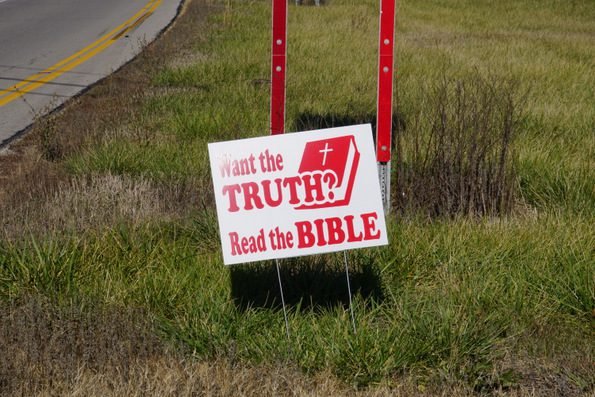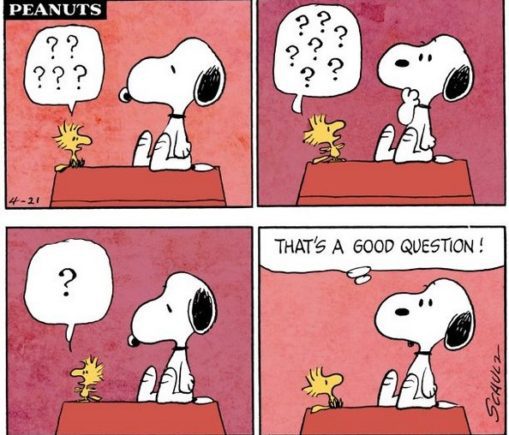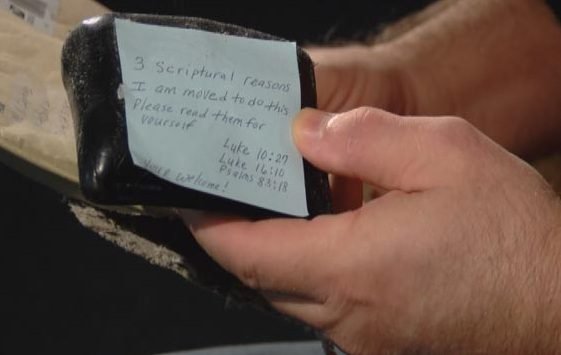
Having engaged in discussions and debates with Evangelical apologists over the years, I’ve found that many of their arguments are irrational, inconsistent, and contradictory. Take the “law of God.” According to Matthew 5:17-20:
Do not think that I have come to abolish the Law or the Prophets; I have come not to abolish but to fulfill. For truly I tell you, until heaven and earth pass away, not one letter, not one stroke of a letter, will pass from the law until all is accomplished. Therefore, whoever breaks one of the least of these commandments and teaches others to do the same will be called least in the kingdom of heaven, but whoever does them and teaches them will be called great in the kingdom of heaven. For I tell you, unless your righteousness exceeds that of the scribes and Pharisees, you will never enter the kingdom of heaven.
Matthew 5-7 records what is commonly called The Sermon on the Mount. Preached by Jesus himself, the Son of God told the gathered crowd that until heaven and earth pass, every letter and stroke of a letter of the law remains in force. Jesus was clear, the Law of God remains in force until heaven and earth pass away. Have heaven and earth passed away? No, so that means the Law of God is valid, binding, and in force. Disagree? Take it up with God. 🙂
The problem, of course, is that Evangelicals don’t agree with one another as to what, exactly, the Law of God is. When Jesus allegedly uttered these words, the Law of God was the Old Testament; the 613 laws of the Tanakh (Hebrew Bible). According to the aforementioned quote, are all of these laws in force today? Most Evangelicals say “no”; they are New Covenant (New Testament) Christians, so only the laws in the New Testament are binding today. When pushed on this matter, you will quickly find that most Evangelicals ignore the words of Jesus in the Sermon on the Mount, picking and choosing which laws apply to them today. Evidently, what Jesus said doesn’t matter.
Some Evangelicals think the Law of God is the Ten Commandments. There are several renderings of the Ten Commandments, none of which agrees with the others. Typically, Evangelicals consider the Exodus 20 rendering of the Law to be the official Law of God, ignoring the irreconcilable discrepancies between the versions.
Do Evangelicals really believe and practice the Ten Commandments? Of course not, silly boy. I have yet to meet an Evangelical that keeps all ten commandments. I am sure they exist, but I just don’t know any. Ask yourself, do you know of a Christian that keeps these commands?
Then God spoke all these words,
- I am the Lord your God, who brought you out of the land of Egypt, out of the house of slavery; you shall have no other gods before me.
- You shall not make for yourself an idol, whether in the form of anything that is in heaven above or that is on the earth beneath or that is in the water under the earth. You shall not bow down to them or serve them, for I the Lord your God am a jealous God, punishing children for the iniquity of parents to the third and the fourth generation of those who reject me6 but showing steadfast love to the thousandth generation of those who love me and keep my commandments.
- You shall not make wrongful use of the name of the Lord your God, for the Lord will not acquit anyone who misuses his name.
- Remember the Sabbath day and keep it holy. Six days you shall labor and do all your work. But the seventh day is a Sabbath to the Lord your God; you shall not do any work—you, your son or your daughter, your male or female slave, your livestock, or the alien resident in your towns. For in six days the Lord made heaven and earth, the sea, and all that is in them, but rested the seventh day; therefore the Lord blessed the Sabbath day and consecrated it.
- Honor your father and your mother, so that your days may be long in the land that the Lord your God is giving you.
- You shall not murder.
- You shall not commit adultery.
- You shall not steal.
- You shall not bear false witness against your neighbor.
- You shall not covet your neighbor’s house; you shall not covet your neighbor’s wife, male or female slave, ox, donkey, or anything that belongs to your neighbor.
I don’t know of anyone who keeps all of these laws. I know, as an Evangelical Christian, I was moral and ethical, but I did not keep all ten commands. I suspect Christians who frequent this site will say the same.
Many Evangelicals believe the Ten Commandments are the law of God written on the hearts (consciences) of all humans; that all of us intuitively know to keep God’s laws. Why, then, are Evangelicals, who allegedly have God, in the person of the Holy Spirit, living inside of them as their teacher and guide, lawbreakers? Only ten commandments. How hard can it be, right? Evidently, too hard for Evangelicals to practice and obey.
Certainly, moral and ethical teachings can be found in the Bible, including the Ten Commandments. However, in this modern age of the printed page and the Internet, we have many sources of moral and ethical wisdom and teaching at our disposal. All of us pick and choose what laws apply to us. I don’t know one Evangelical who keeps the law to “remember the Sabbath and keep it holy.” The “Sabbath” in Jesus’s day was a twenty-four-hour period of work cessation and worship. This is far different from what Evangelicals do today: two hours of church on Sunday mornings, and then off to Bob Evans to eat before going to work, shopping, or the ball game. If this law is written on the hearts of Evangelicals, why don’t they practice it?
I deconverted from Christianity almost seventeen years ago. One of the first things I had to do, and continue to do today, is determine the moral and ethical foundation for my life. The Bible was no longer a sufficient guide, and I had come to see that more than a few of God’s commands were immoral. Other commands were contrary to my values. The Bible spends a lot of time talking about sex; who can do it with whom, when, where, how, and why. Those of us raised in Evangelical churches heard a lot of preaching about sex. And I, as a pastor, preached a lot of sermons about the subject. Today, as a humanist, I reject what the Bible says about sex. Instead, values such as consent and bodily autonomy govern my views on human sexuality. What two (or more) consenting people do sexually in the privacy of their homes is their own business. Not mine, not yours, not the local preacher’s, and not God’s.
My moral and ethical views continue to evolve to this day. My list of thou shalt’s and thou shalt not’s is quite small. I subscribe to the Humanist Manifesto:
Humanism is a progressive philosophy of life that, without supernaturalism, affirms our ability and responsibility to lead ethical lives of personal fulfillment that aspire to the greater good of humanity.
The lifestance of Humanism—guided by reason, inspired by compassion, and informed by experience—encourages us to live life well and fully. It evolved through the ages and continues to develop through the efforts of thoughtful people who recognize that values and ideals, however carefully wrought, are subject to change as our knowledge and understandings advance.
This document is part of an ongoing effort to manifest in clear and positive terms the conceptual boundaries of Humanism, not what we must believe but a consensus of what we do believe. It is in this sense that we affirm the following:
Knowledge of the world is derived by observation, experimentation, and rational analysis. Humanists find that science is the best method for determining this knowledge as well as for solving problems and developing beneficial technologies. We also recognize the value of new departures in thought, the arts, and inner experience—each subject to analysis by critical intelligence.
Humans are an integral part of nature, the result of unguided evolutionary change. Humanists recognize nature as self-existing. We accept our life as all and enough, distinguishing things as they are from things as we might wish or imagine them to be. We welcome the challenges of the future, and are drawn to and undaunted by the yet to be known.
Ethical values are derived from human need and interest as tested by experience. Humanists ground values in human welfare shaped by human circumstances, interests, and concerns and extended to the global ecosystem and beyond. We are committed to treating each person as having inherent worth and dignity, and to making informed choices in a context of freedom consonant with responsibility.
Life’s fulfillment emerges from individual participation in the service of humane ideals. We aim for our fullest possible development and animate our lives with a deep sense of purpose, finding wonder and awe in the joys and beauties of human existence, its challenges and tragedies, and even in the inevitability and finality of death. Humanists rely on the rich heritage of human culture and the lifestance of Humanism to provide comfort in times of want and encouragement in times of plenty.
Humans are social by nature and find meaning in relationships. Humanists long for and strive toward a world of mutual care and concern, free of cruelty and its consequences, where differences are resolved cooperatively without resorting to violence. The joining of individuality with interdependence enriches our lives, encourages us to enrich the lives of others, and inspires hope of attaining peace, justice, and opportunity for all.
Working to benefit society maximizes individual happiness. Progressive cultures have worked to free humanity from the brutalities of mere survival and to reduce suffering, improve society, and develop global community. We seek to minimize the inequities of circumstance and ability, and we support a just distribution of nature’s resources and the fruits of human effort so that as many as possible can enjoy a good life.
Humanists are concerned for the well-being of all, are committed to diversity, and respect those of differing yet humane views. We work to uphold the equal enjoyment of human rights and civil liberties in an open, secular society and maintain it is a civic duty to participate in the democratic process and a planetary duty to protect nature’s integrity, diversity, and beauty in a secure, sustainable manner.
Thus engaged in the flow of life, we aspire to this vision with the informed conviction that humanity has the ability to progress toward its highest ideals. The responsibility for our lives and the kind of world in which we live is ours and ours alone.
As you can see, the Humanist Manifesto III conflicts with how Evangelicals interpret the Bible; that its moral and ethical teachings are different from what’s found in the Ten Commandments and other Biblical laws. Generally, I govern my life by four maxims: Don’t be an asshole, Do good to others, Lessen suffering for all living things, and love others (in thoughts, words, and deeds) as much as lies within me.
I don’t need the Bible or the Ten Commandments to know how to live and treat others. I spent fifty years in Evangelicalism, so even though I no longer believe in the existence of the Christian deity, what I learned at church and from the Bible still informs my morals and ethics. The difference now, of course, is that the Bible alone is no longer the foundation of my life; not that it ever was. All of us frame our moral and ethical structure based on a variety of experiences. That’s why none of us has the same moral and ethical foundation. Morality is inherently subjective, even if one is a Christian. The best we can do is to agree on a basic moral and ethical framework by which we govern our society.
How do you determine what is moral and ethical? Does the Bible and/or religion play a part? If you are no longer a Christian, have you found it difficult to determine your moral and ethical values? Please share your thoughts in the comment section.
Bruce Gerencser, 67, lives in rural Northwest Ohio with his wife of 46 years. He and his wife have six grown children and sixteen grandchildren. Bruce pastored Evangelical churches for twenty-five years in Ohio, Texas, and Michigan. Bruce left the ministry in 2005, and in 2008 he left Christianity. Bruce is now a humanist and an atheist.
Your comments are welcome and appreciated. All first-time comments are moderated. Please read the commenting rules before commenting.
You can email Bruce via the Contact Form.










